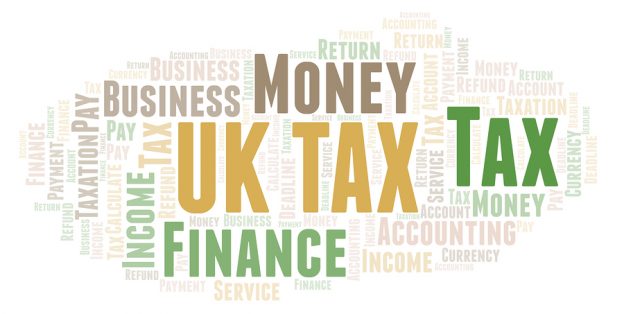
The Institute of Fiscal Studies has analysed government figures to find that 43% of people are not paying any income tax. Aside from creating a shock headline, the research also points out some other key statistics that give us a wider picture of income tax payments and the complex issues involved. They base their findings on the most recently available government figures from the 2015-16 tax year.
Who is paying income tax?
56% of the population are paying income tax. Of those 31million people, 300,000 actually pay in 27% of the income tax total. The top 1% of earners pay almost a third of the UK’s entire income tax.
Why are 43% of people not paying income tax?
Firstly, it is important to establish which groups of people are in this category: unemployed, stay-at-home parents, full time carers, homeless and retired. Also, those earners who make less than the Personal Allowance amount of £12,500. There are 43% of our population living on less than £12,500 per year.
It would seem that a rising proportion of retirees and the constant increase to the Personal Allowance amount in recent years are the most significant reasons why we have reached such a high percentage of people not paying any income tax.
But this doesn’t mean that this group of people aren’t paying anything to HMRC. It is not a totally straightforward situation.
As reported by the MailOnline, chief executive of the TaxPayers’ Alliance, John O’Connell, said: “The decline in the number of adults who pay income tax is in large part because of more retirees, and the increase in the personal allowance. But too often we are forced to pay for other taxes which we might not even be aware of. From flights to petrol, insurance to fizzy drinks, the government takes a huge proportion of our income, even if your labour isn’t taxed any more. National insurance and income tax should eventually be merged. This will simplify the system and ensure people are more aware of just how much HMRC extracts from them.”
How much has the Personal Allowance gone up?
The Personal Allowance is the amount you can earn without being liable to pay any tax on that income. Anything you earn under that amount is tax free. In 2010 this was £6,450. Successive governments have increased this amount every year to its current level of £12,500. That’s a rise of £6,050.
It is no real surprise that the percentage of people not paying any income tax has gone up by 10% since the 2007-2008 tax year number of 34.5%.
What else does the research tell us?
Several revealing statistics come out of this research:
- Largest group of earners are 45-54 year old men. For them to be consider in the top 1% In London they must earn £700,000 a year. In the rest of the UK they are in the top 1% with an annual income of £162,000. A huge regional difference.
- 35% of the highest earners lived in London in 2014-15 tax year. This was 29% in 2000-01.
- The top 1% of earners are 83% men.
- A quarter of the top 1%’s earnings is from dividend and partnership income from companies they own. This matters because this type of income is taxed at a different, lower rate to other income. According to the IFS report, this is “a policy choice to tax the incomes of business owners at lower rates than employees, which therefore benefits a significant share of the top 1 per cent”.
- The research uses information that is broken down by constituency. The constituencies with the lowest earners were Liverpool Walton, Rhondda, Stoke-on-Trent Central, Birmingham Hodge Hill and Kingston upon Hull East. The five highest earning constituencies were Westminster, Kensington, Chelsea and Fulham, Richmond Park and Esher and Walton (all in London).
What is the commentary on these issues?
As with any set of figures, interpretation can vary widely.
As reported by the MailOnline, Head of Programmes at the Adam Smith Institute, Daniel Pryor, said: ‘These statistics put to shame the idea that the rich aren’t paying their fair share – in fact, top income earners pay the vast majority of tax in the UK. Income tax hurts investment, economic growth and innovation, and it’s good that many Brits on lower wages are paying less. This does, however, create a worrying political issue: fewer people having a direct stake in pushing for lower taxes or getting value-for-money from government.”
Onwards director, Will Tanner, told MailOnline: ‘While low income earners should always be prioritised the risk with a larger and larger proportion of voters not contributing is it erodes the principle that people have to pay in to get stuff out. We should be wary of undermining the contributory principle that underpins the link between tax raising and public spending. We should have a broad tax base in which people pay in towards public services and then take out when they need those services. A narrow tax base reduces the feeling that “we’re all in this together” and we’re all contributing to the state of public investment.”
Labour’s John McDonnell told The Independent: “A massive proportion of the top 1 per cent live in London and the southeast, and it’s yet another sign of how Tory governments have encouraged the super-rich to concentrate in those regions while the rest of the country is held back. It’s shocking that so many of the top 1 per cent are getting tax advantages, as partners and business owners, and we’re going to get more help for the very wealthiest from this Boris Johnson-led government of bankers. A Labour government will be for the many, not the few – and will tackle regional inequality, introduce a fairer taxation system, and clamp down on tax advantages exploited by the super-rich.”





